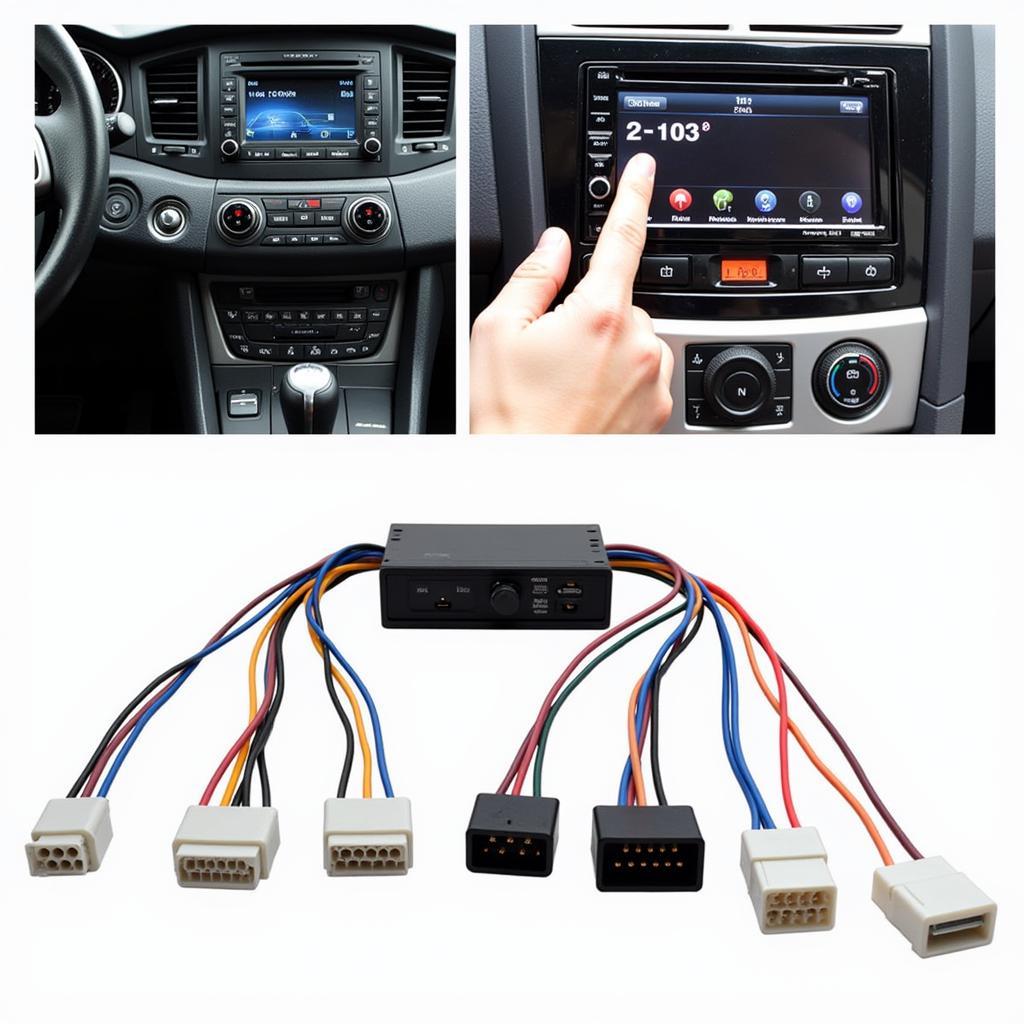A dead car battery is a frustrating experience. Understanding the cause of rapid discharge of battery is crucial for preventing future occurrences and ensuring reliable vehicle operation. Several factors can contribute to this problem, ranging from simple user errors to more complex mechanical or electrical faults. This article delves into the common culprits behind a quickly draining battery, empowering you to diagnose and address the issue effectively.
Common Culprits Behind a Rapid Battery Discharge
Several factors can drain your car battery quickly. Some are easily overlooked, while others require professional diagnosis. Identifying the specific cause is crucial for effective repair.
Parasitic Drain: The Silent Battery Killer
A parasitic drain occurs when a component continues to draw power even when the vehicle is off. This can be as simple as a glove compartment light staying on or a more complex issue like a faulty alternator. Identifying and eliminating parasitic drains is essential for maintaining battery health.
- Faulty Wiring: Damaged or corroded wiring can create unintended circuits, leading to a continuous power drain.
- Malfunctioning Components: A defective radio, alarm system, or even a clock can draw excessive power, causing the battery to discharge quickly.
- Aftermarket Accessories: Improperly installed aftermarket accessories, such as amplifiers or lighting, can create parasitic draws.
Similar to battery on car keeps draining, identifying the source of the drain often involves systematically disconnecting fuses and checking for changes in the current draw.
Alternator Issues: Not Charging Correctly
The alternator is responsible for recharging the battery while the engine is running. A malfunctioning alternator can fail to provide sufficient charge, leading to a gradual or rapid battery discharge.
- Worn-out Brushes: The alternator’s brushes wear down over time, reducing their effectiveness in generating electricity.
- Damaged Diode: A damaged diode within the alternator can prevent proper current flow, hindering the charging process.
- Loose Belt: A loose or slipping alternator belt can reduce the alternator’s speed and efficiency.
Extreme Temperatures: Affecting Battery Performance
Both extreme heat and cold can negatively impact battery performance. High temperatures can accelerate the chemical reactions within the battery, leading to faster self-discharge. Cold temperatures can reduce the battery’s capacity and its ability to accept a charge.
- Hot Weather: Excessive heat can evaporate the battery’s electrolyte and cause internal damage.
- Cold Weather: Low temperatures thicken the electrolyte, slowing down the chemical reactions needed for charging and discharging.
This issue has similarities with new battery dies overnight during winter, as the cold can significantly reduce battery capacity.
Old Age: The Natural Battery Decline
As batteries age, their internal components degrade, reducing their capacity to hold a charge. This natural decline eventually leads to a shorter lifespan and more frequent discharges.
- Sulfation: Sulfation occurs when lead sulfate crystals build up on the battery plates, hindering the chemical reactions necessary for charging and discharging.
- Corrosion: Corrosion on the battery terminals can impede the flow of current, leading to a weaker charge and starting problems.
Just like the 2018 gmc acadia battery problems, regular battery maintenance can help prolong its life, but eventually, replacement becomes necessary. Understanding how these factors contribute to a rapid battery discharge can prevent future occurrences and ensure reliable vehicle operation. Regular battery testing and preventative maintenance can address many of these issues before they lead to a breakdown.
How Long Should a Car Battery Last?
Typically, a car battery lasts between 3 and 5 years. Factors such as driving habits, climate, and maintenance can influence its lifespan.
What Causes a Car Battery to Drain Overnight?
A battery draining overnight often indicates a parasitic drain, where a component continues to draw power even when the car is off.
Can a Bad Alternator Drain a Car Battery?
Yes, a faulty alternator can prevent the battery from charging properly, leading to a drained battery.
How Can I Prevent My Car Battery From Draining Quickly?
Regularly checking for parasitic drains, ensuring the alternator functions correctly, and maintaining the battery in good condition can help prevent rapid discharge. This is similar to the issues discussed in mini increased battery discharge which highlights the importance of preventative maintenance. Problems with newer electric vehicles, such as those mentioned in tesla battery warning, can also benefit from regular diagnostics and software updates.
Conclusion
The rapid discharge of a car battery can stem from various reasons, from a simple dome light left on to a more complex alternator issue. By understanding these potential causes and performing regular maintenance, you can effectively address and prevent future battery problems, ensuring your vehicle is always ready to go.


